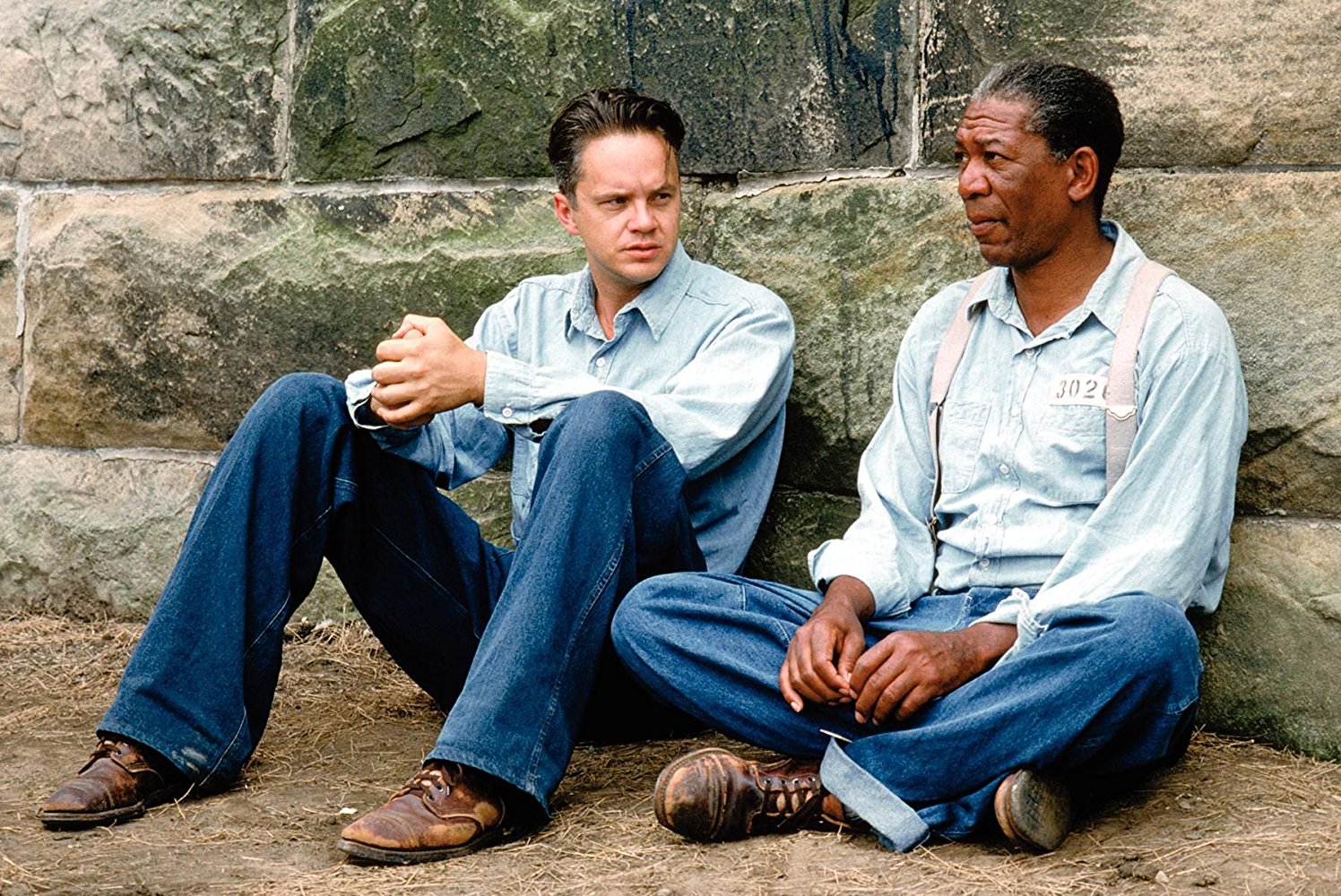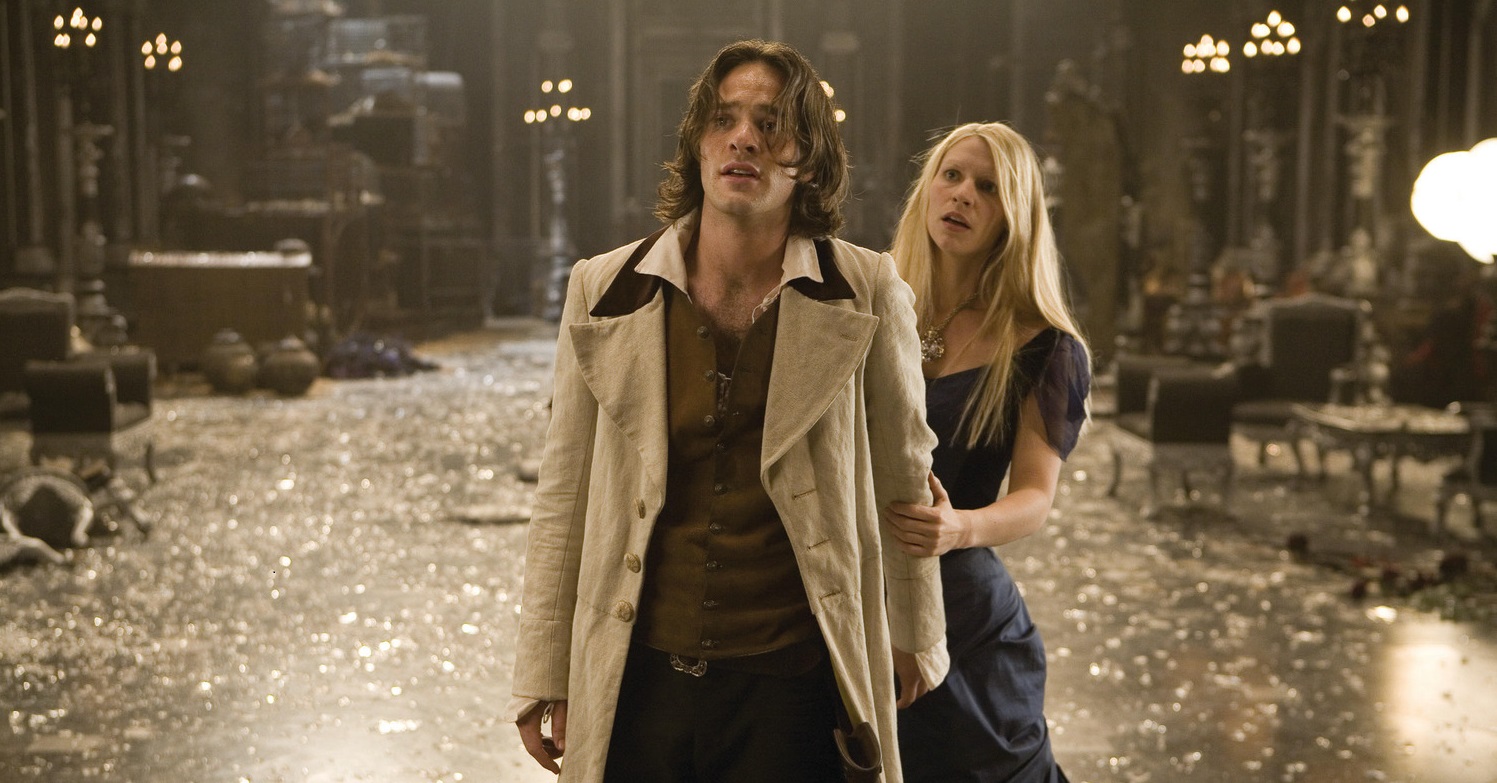Rian Johnson. He’s the writer and director behind Star Wars: The Last Jedi, which arrives in a matter of days, and anticipation has never been higher. But just who is this guy who not only has helmed one of the largest event films of the year, but has now been announced to have been put in charge of a whole new Star Wars trilogy to be produced after the current trilogy is concluded? To pull back the curtain a bit on how I tend to write entries in the Everything I Learned series, I generally watch a director’s feature filmography in chronological order and try to find a defining characteristic that evolves or develops over time that I can exemplify as the thesis for what sets that director apart. However, Rian Johnson is a little bit different, as the three films to his name don’t share genre, thematic similiarites, or, for the most part, even recurring actors. So what exactly then is Rian Johnson’s defining characteristic? My answer is reverence.
Johnson’s debut feature was 2005’s Brick, wherein a high school student, Brendan (Joseph Gordon-Levitt), investigates the death of his ex-girlfriend Emily after she had called him at a payphone in a panicked state. His investigation leads him on a journey through a seedy underground of adolescent drug dealing and the relationships his ex-girlfriend had after their relationship’s end. In the process, Brendan not only discovers the culprit responsible for Emily’s death, but he also finds the ways in which he was inextricably tied to her fate.
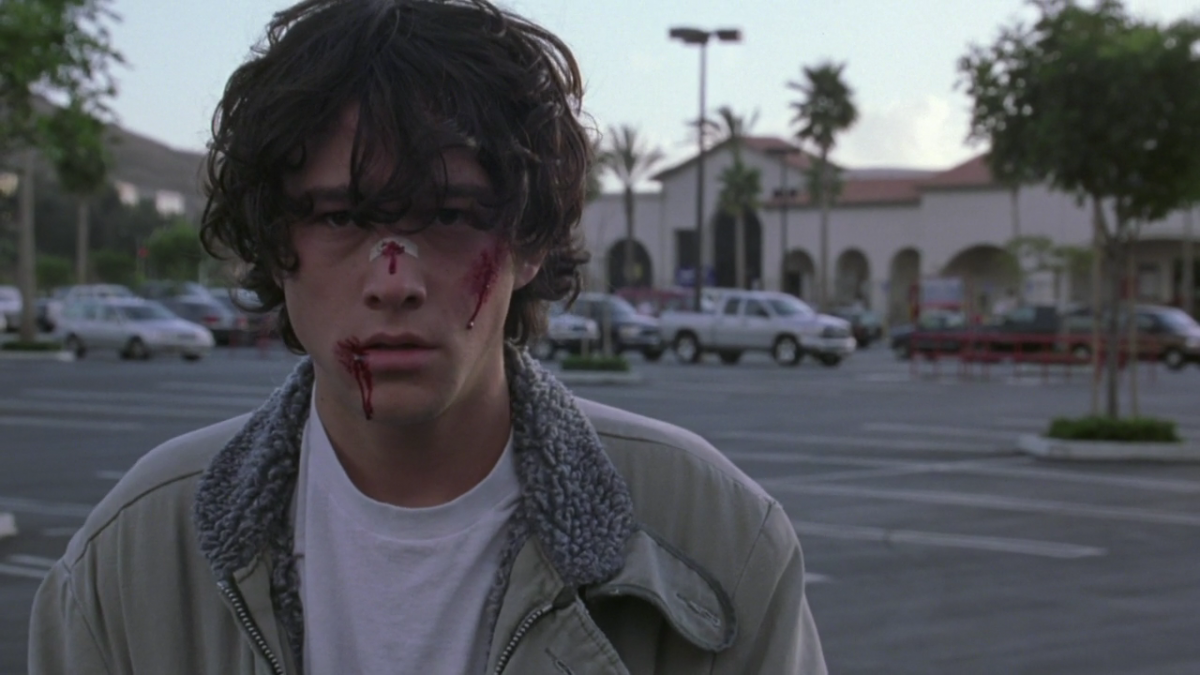
Brick (2005)
In essence, Brick is the translation of the hardboiled detective narrative to a high school setting, only without the winking self-reference of similar projects like Veronica Mars. Johnson has fun with the notion that these kids are playing above their capabilities—a scene where an adolescent crime boss’s mother serves our hero a meal is particularly amusing—but overall the tone of the film is serious and deferential to the tropes of its genre predecessors. Brendan is a harsh loner with a sense of morality that he himself cannot always live up to, and his disposition to discover what’s right leads him to dealings with the truly depraved, including a femme fatale who acts as his ultimate temptation. With the exception of the setting, Brick wouldn’t be out of place had it been filmed monochromatically and released in the 1940s, and it’s that reverence for genre and form that defines Brick as a modern classic.
It’s shocking then that Johnson’s second film, The Brothers Bloom, would be such a vast departure in both tone and genre. In the 2008 comedy, brothers Stephen (Mark Ruffalo) and Bloom (Adrien Brody) are con artists who have made their careers through elaborate acts wherein their marks often don’t even realize they’ve been manipulated. However, Stephen’s schemes often leave Bloom in roles different from his own personality, and Bloom starts to question whether he has even lived his own life or just the ones his brother has written for them. After leaving in this crisis of faith, Stephen tracks down his brother for one last job that he thinks will give his brother purpose: seducing the rich heiress Penelope (Rachel Weisz) under the guise of bringing her in on a fake smuggling operation.
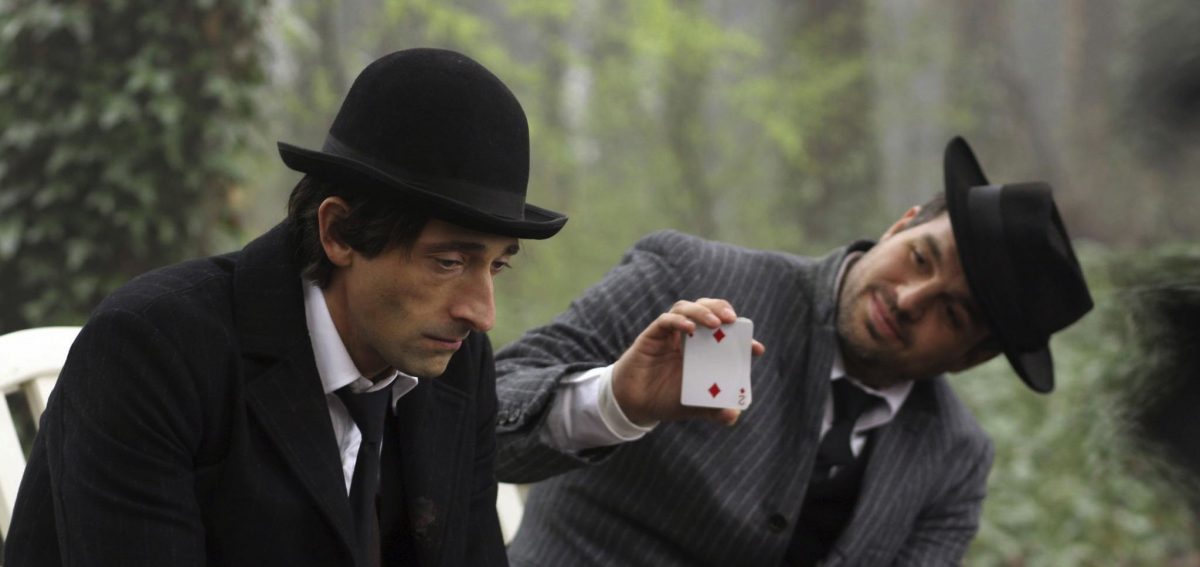
The Brothers Bloom (2008)
What Johnson creates here is a con artist caper that appropriately plays with one’s sense of reality and fiction, with Stephen acting as a giggling character surrogate for Johnson as strings are pulled and seemingly accidental consequences turn out to be elaborately staged plans to pair Bloom and Penelope in romantic bliss. The heightened reality of the Blooms’ world, complete with absurdist spectacle and explosions, reinforces the fictional nature of a story in which one character is, and I quote, looking for “an unwritten life.” In The Brothers Bloom, Johnson not only pays dear homage to the twist-filled narratives of con films of the past, but he turns his film into a commentary on the very process of writing such a narrative, grappling with characters that want to depart from his machinations even as his story must work to manipulate them back to their places for the sake of a satisfying resolution. The film’s conclusion is a remarkably astute blend of fictional and metafictional satisfaction wherein Bloom and Penelope accept their roles as romantic leads in the story even as Bloom’s old life falls apart behind him. Johnson here expresses his reverence for narrative form and the creative process in all its twisted unpredictability.
But Johnson would jump genre once again to science fiction with 2012’s Looper, though this film would at least be closer in tone to its noir cousin Brick. Set in a near future, Joe (Joseph Gordon-Levitt) works as a looper, an assassin who kills men sent back in time from even farther in the future so that their bodies may be disposed of discretely. However, when a future version of himself (Bruce Willis) is sent back in time to be Joe’s last victim, he fails to kill the man. Now Future Joe is out to prevent a future that killed his family by killing a child that will one day dominate the criminal underworld, while Present Joe discovers purpose in protecting that child and his mother (Emily Blunt).
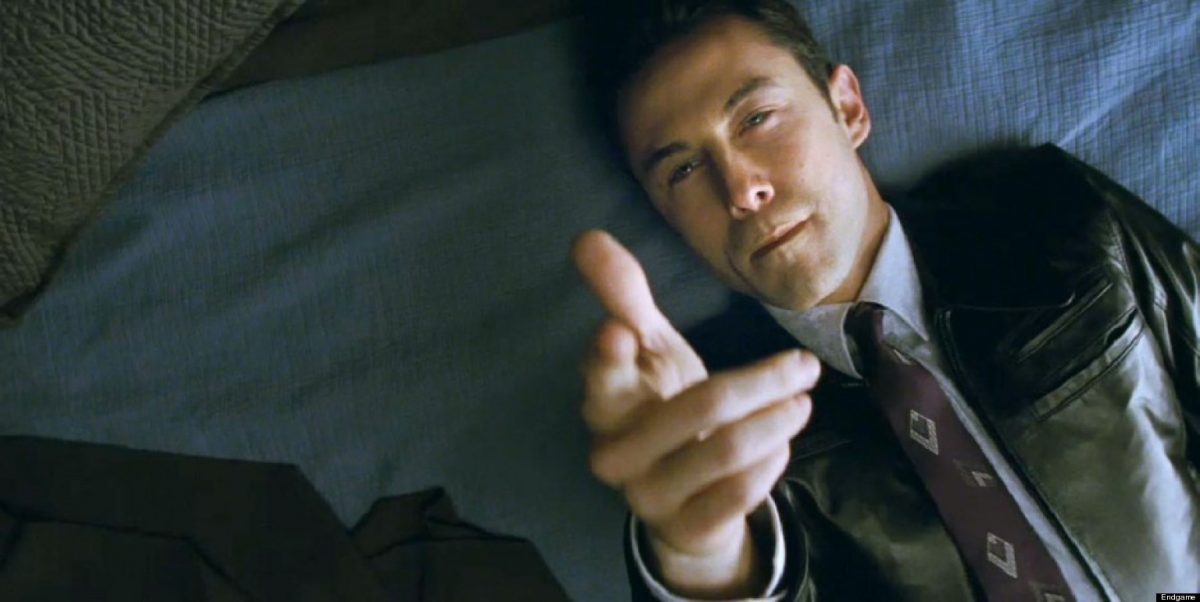
Looper (2012)
The concept of Looper is classically high-concept, a wonderfully inventive exploration of time travel and multiple selves wrapped in very solid action beats and a conception of the future that is as plausible as it is inspired. There is obvious inspiration from the likes of Blade Runner and Akira, but part of what makes Looper so intriguing is in how it handles its time travel elements. Unlike many time travel narratives that get bogged down in technicalities and overexplanation, Looper smartly establishes its rules and then sticks by those rules with a frank declaration that the reasons for those rules don’t require further explanation. For the purposes of the narrative, the physics of time travel don’t actually matter, and the emotional core of a story is much more important than a lecture on why a plot point is or isn’t scientifically accurate. This is a narrative about Joe coming to grips with the darker aspects of his personality made manifest, and no amount of technobabble is going to make that more compelling.
It’s this sort of reverence for narrative form and construction that exemplifies Rian Johnson as a filmmaker. In a sense, this is just an overly pretentious way of saying that Johnson is really damn good at making movies, but making that distinction shows why Johnson is such a good fit for Star Wars. Having grown up with this franchise of films, Johnson has a professed connection with the material that promises to inform his take on his installment. However, he has also proved himself to be a creative and inventive storyteller, so his reverence is not going to be grounded entirely in nostalgia. Instead, I expect The Last Jedi will be a resonant experience for fans old and new, and if Lucasfilm’s faith in putting him in charge of a new trilogy is any indication, they feel similarly.




